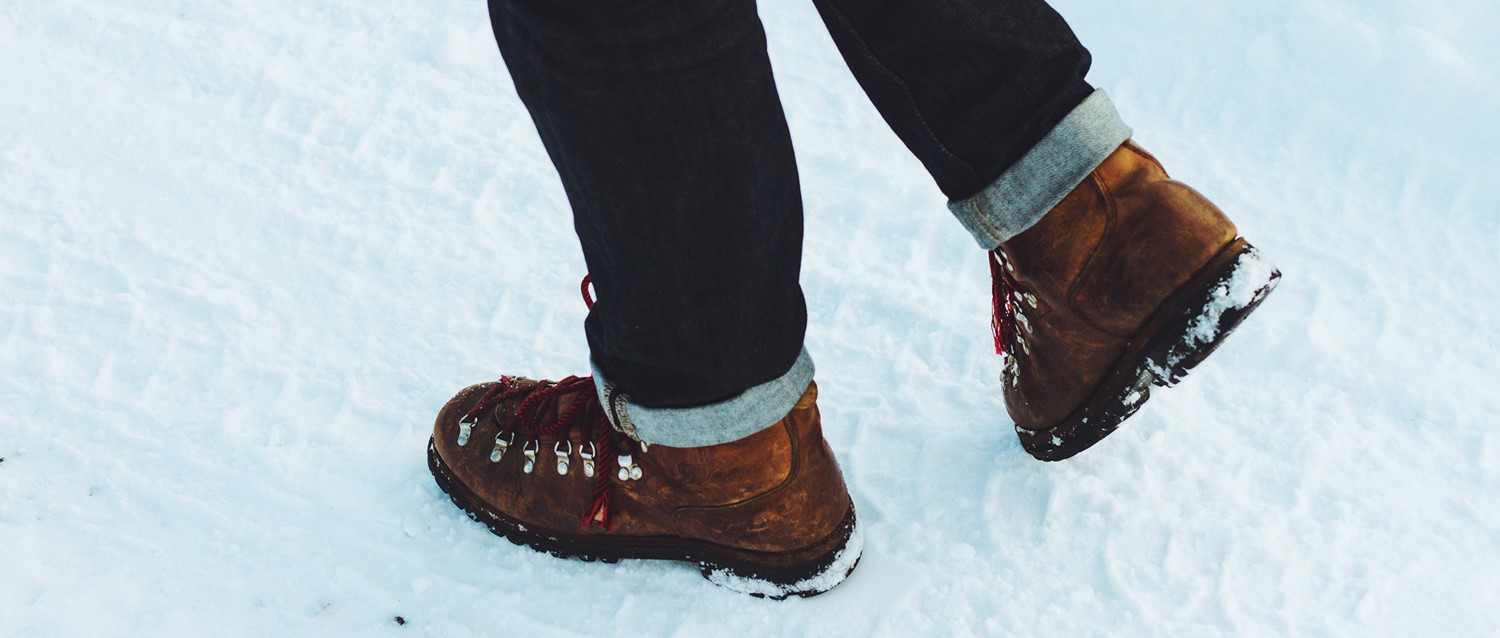
What's causing your cold hands and feet?
Peer reviewed by Dr Krishna Vakharia, MRCGPLast updated by Victoria RawLast updated 4 Apr 2025
Meets Patient’s editorial guidelines
- DownloadDownload
- Share
- Language
- Discussion
- Audio Version
The most common answer to the question "What's causing your cold feet?" or "Why are my hands and feet always cold?" is usually, "Being a woman!"
Yes, women are naturally inclined to have ice-blocks for feet and hands. But there are several medical conditions that can also be to blame.
In this article:
Video picks for Foot problems
Continue reading below
How does our body temperature work?
Our bodies have amazingly sophisticated mechanisms to keep our vital internal organs at exactly the right temperature. One of these is shutting off circulation to your extremities and directing all the warm blood to your inner organs, causing cold hands and feet.
Blood flow can reduce by 99% in the cold - and it's women who do it best. Part of this is hormone-related, so your tendency to suffer cold feet will vary during your menstrual cycle. Women also have a higher proportion of fat under their skin - great for insulating their internal organs but bad for blood supply to the skin.
Raynaud's syndrome
Back to contentsWomen are also much more prone to a condition called Raynaud's syndrome, probably for the same reasons, which result in cold hands and feet. In Raynaud's, your fingers and sometimes toes turn cold and white, then go blue and numb when exposed to cold.
Episodes can last from minutes to several hours. There's usually no obvious cause, although some autoimmune conditions - where your body's immune system turns on itself - such as rheumatoid arthritis and scleroderma, can be to blame. It can be brought on by medicines which affect blood flow - including beta-blockers for heart conditions, some cancer medicines, and decongestants.
Prolonged use of vibration tools used in building work can damage tiny blood vessels in your hands, making you prone to Raynaud's. A tablet called nifedipine, taken either daily or just in cold weather, may sort the issue out.
Continue reading below
Peripheral arterial disease
Back to contentsBlockage or furring up of bigger blood vessels supplying your feet with blood can lead to numb, cold feet, as well as pain - usually starting in your calves. The main disease is called peripheral arterial disease (PAD).
PAD is mostly down to all the same factors that increase your chance of heart attack and stroke - after all, these are both caused by blocked arteries in different parts of the body. But while high blood pressure and cholesterol are the biggest causes of stroke and heart disease, the single most important cause of PAD is smoking.
The first symptom of PAD is usually pain in your calves, which comes on after you've been walking a set distance and settles when you stop. The distance gets shorter as the condition progresses, as well as if you're walking uphill or into a wind.
You can lose hair on your legs and get numb, cold feet and ulcers. Stopping smoking is key, but regular exercise is also essential to improve circulation. Several medicines can help, and in severe cases surgery to restore blood flow through the blocked arteries may be recommended.
Diabetes and cold feet
Back to contentsDamage to your nerves can also cause cold feet. Diabetes is a major cause of this - high blood sugar affects your nerves, with feet most often the first to feel the strain. If you have diabetes, keeping your blood sugar well controlled will cut your likelihood of foot problems dramatically. Your GP surgery should invite you to a foot check as part of an annual review.
However, it's also essential to examine your own feet regularly. As well as feeling cold, you may get burning, shooting pain at night. You can lose the ability to feel pain, so may be more prone to injuries which don't heal well. Foot ulcers also leave you vulnerable without proper attention to your feet. If in any doubt, contact your healthcare professional.
Continue reading below
Underactive thyroid gland
Back to contentsAn underactive thyroid gland can leave you with freezing cold feet. Your thyroid gland regulates your metabolism - so if this slows down you can feel the cold more. You may also be tired and constipated, and put on weight for no reason. If blood tests reveal an issue, regular medicine will put your thyroid back into balance.
A few final tips
Back to contentsBeing very underweight can cause cold hands and feet. Whatever the cause of your cold hands and feet, stopping smoking can help, as smoking shuts down warming blood circulation.
With thanks to 'My Weekly' magazine where this article was originally published.
Patient picks for Foot problems

Foot care
Do your feet get smellier in winter?
Think smelly feet is only a worry during the warmer months? Think again. But if you've noticed an embarrassing odour from your socks and shoes, there are plenty of things you can try.
by Natalie Healey

Foot care
How to find out what's causing your foot pain
Our feet pound the streets every day, carrying all our weight, so it's hardly surprising that sometimes we experience foot pain. So don't fling on any old shoes without a thought - your footwear options could have a high impact on your foot health.
by Dr Sarah Jarvis MBE, FRCGP
Continue reading below
Article history
The information on this page is peer reviewed by qualified clinicians.
Next review due: 4 Apr 2028
4 Apr 2025 | Latest version
12 Feb 2019 | Originally published
Authored by:
Dr Sarah Jarvis MBE, FRCGP

Ask, share, connect.
Browse discussions, ask questions, and share experiences across hundreds of health topics.

Feeling unwell?
Assess your symptoms online for free
Sign up to the Patient newsletter
Your weekly dose of clear, trustworthy health advice - written to help you feel informed, confident and in control.
By subscribing you accept our Privacy Policy. You can unsubscribe at any time. We never sell your data.